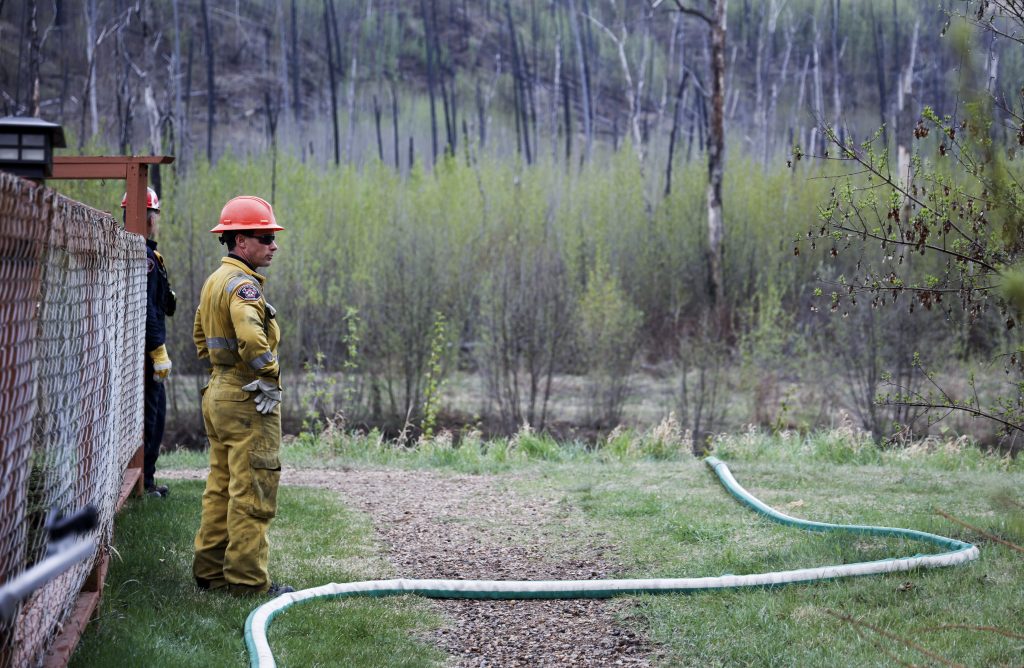Rain, cooler temperatures cause ‘significant decline’ in Alberta wildfire risk

The Alberta government says cool, wet weather over the past week has lowered the risk of wildfires in the province.
Alberta Forestry Minister Todd Loewen says there has been a “significant decline” in the number of active wildfires since last week.
There are 30 fires burning in the province, with three listed as being held and four as under control.
Advertisement
Twenty are left over from last year’s wildfire season.
Loewen says a fire on the boundary of Alberta and the Northwest Territories poses little danger to critical infrastructure and it’s expected to soon be classified as “being held.”
A fire near the northern oilsands hub of Fort McMurray, which forced about 6,000 residents in some neighbourhoods out for several days last week, was still listed as being held.
The evacuation order was lifted Saturday, “thanks to the favourable conditions along with diligent work on behalf of firefighters and support staff,” Loewen said Thursday.
Alberta Wildfire information officer Christie Tucker said 45 millimetres of rain was recorded outside of Fort McMurray on the weekend, but said the risk isn’t over.
Advertisement
“It was a wet and cool long weekend for most Albertans and those conditions certainly did help the work of firefighters, especially those working up north,” she said.
“But it doesn’t mean our work there is done.”
About 290 square kilometres of forest have been burned so far this year in Alberta.
“It’s important to remember that conditions can change very quickly in Alberta leading to heightened wildfire danger and activity,” Loewen said.
“We’re expecting rain in many areas of the province over the next few days, but it’s crucial Albertans continue to stay up to date on wildfire risk levels.”
Advertisement
Loewen said every wildfire is investigated and about 77 per cent this year have been caused by people.
In the Calgary area last weekend, crews responded to 25 abandoned campfires that had to be quickly put out.
“If wildfire danger had been higher, these easily could have led to new, catastrophic wildfire starts,” Loewen said.
